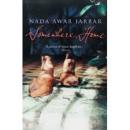AustLit
The material on this page is available to AustLit subscribers. If you are a subscriber or are from a subscribing organisation, please log in to gain full access. To explore options for subscribing to this unique teaching, research, and publishing resource for Australian culture and storytelling, please contact us or find out more.
Latest Issues
AbstractHistoryArchive Description
A moving novel about modern Lebanon, this story intermingles the lives of three women and explores their reactions to war, loss, displacement, exile and return to the homeland. This is Nada A. Jarrar's first novel.
Notes
-
Dedication: For my family
Publication Details of Only Known VersionEarliest 2 Known Versions of
Works about this Work
-
Meditation on Memory and Belonging : Nada Awar Jarrar's 'Somewhere Home'
2009
single work
criticism
— Appears in: Arab Voices in Diaspora : Critical Perspectives on Anglophone Arab Literature 2009; (p. 463-485) Dawn Mirapuri argues that 'Somewhere, Home participates in the dialogue within Lebanon about the memory of war.' As Mirapuri outlines: 'My reading will show that in the first part of the novel, the lacuna presented by the obvious omission of the civl war reflects the amnesia that has prevailed in the postwar era. I will show that this kind of amnesia fosters forms of subjectivity and representation that abrogate responsibility and hinder reconciliation. It will be shown that, in the second part of the novel, Jarrar conveys the necessity to address the issue of communal guilt and shame in relation to the war. My reading of the third story in the novel is that Jarrar focuses attention afresh on the people left behind through migration or exile, to show that their loss of a loved one who has moved away needs to be highlighted in memory discourses' (pp. 468-469). -
Somewhere, Home : An Evocative Look at Our Need to Belong
2004
single work
review
— Appears in: The Daily Star , 6 January 2004;
— Review of Somewhere, Home 2003 single work novel -
Home Is Where the Culture Is
2004
single work
biography
— Appears in: The Advertiser , 26 June 2004; (p. 9) -
In Short : Fiction
2004
single work
review
— Appears in: The Sydney Morning Herald , 22-23 May 2004; (p. 13)
— Review of Somewhere, Home 2003 single work novel ; The Affairs of Men 2004 selected work short story ; As Far as You Can Go 2004 single work novel -
Words of Love and War
2004
single work
review
— Appears in: The Bulletin , 25 May vol. 122 no. 6422 2004; (p. 64-65)
— Review of Somewhere, Home 2003 single work novel
-
Words of Love and War
2004
single work
review
— Appears in: The Bulletin , 25 May vol. 122 no. 6422 2004; (p. 64-65)
— Review of Somewhere, Home 2003 single work novel -
In Short : Fiction
2004
single work
review
— Appears in: The Sydney Morning Herald , 22-23 May 2004; (p. 13)
— Review of Somewhere, Home 2003 single work novel ; The Affairs of Men 2004 selected work short story ; As Far as You Can Go 2004 single work novel -
Somewhere, Home : An Evocative Look at Our Need to Belong
2004
single work
review
— Appears in: The Daily Star , 6 January 2004;
— Review of Somewhere, Home 2003 single work novel -
Back Where They Belong - A Lyrical Debut Novel Tells of Three Civil War Exiles
2003
single work
review
— Appears in: The Observer , 22 June 2003; (p. 17)
— Review of Somewhere, Home 2003 single work novel -
'Somewhere, Home' de Nada Awar Jarrar : Nostalgie féminine à troix voix
2003
single work
review
— Appears in: L'Orient - Le Jour , 25 April 2003; (p. 6)
— Review of Somewhere, Home 2003 single work novel -
Home Is Where the Culture Is
2004
single work
biography
— Appears in: The Advertiser , 26 June 2004; (p. 9) -
Meditation on Memory and Belonging : Nada Awar Jarrar's 'Somewhere Home'
2009
single work
criticism
— Appears in: Arab Voices in Diaspora : Critical Perspectives on Anglophone Arab Literature 2009; (p. 463-485) Dawn Mirapuri argues that 'Somewhere, Home participates in the dialogue within Lebanon about the memory of war.' As Mirapuri outlines: 'My reading will show that in the first part of the novel, the lacuna presented by the obvious omission of the civl war reflects the amnesia that has prevailed in the postwar era. I will show that this kind of amnesia fosters forms of subjectivity and representation that abrogate responsibility and hinder reconciliation. It will be shown that, in the second part of the novel, Jarrar conveys the necessity to address the issue of communal guilt and shame in relation to the war. My reading of the third story in the novel is that Jarrar focuses attention afresh on the people left behind through migration or exile, to show that their loss of a loved one who has moved away needs to be highlighted in memory discourses' (pp. 468-469).
Awards
- 2004 winner South East Asia and South Pacific Region — Best First Book
- 2004 winner Commonwealth Writers Prize — Best First Book
Last amended 11 Jun 2020 13:21:52
Settings:
-
cLebanon,cMiddle East, Asia,
-
cAustralia,c
Export this record





